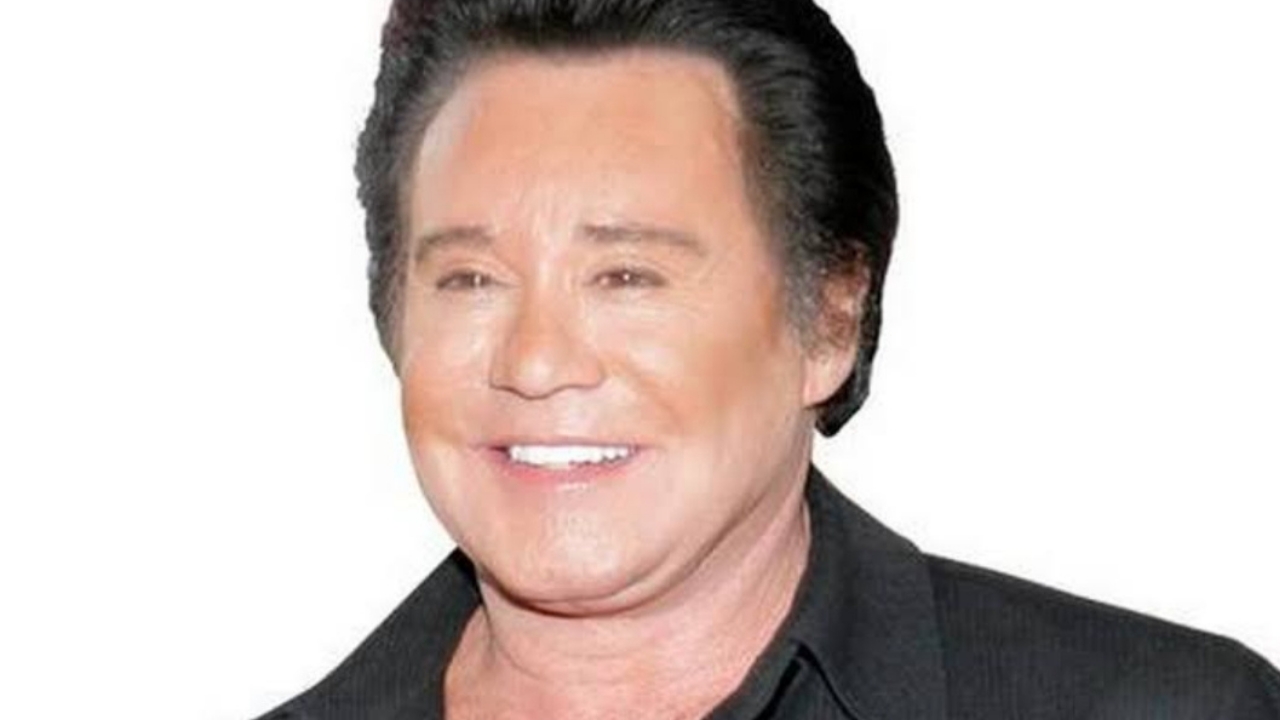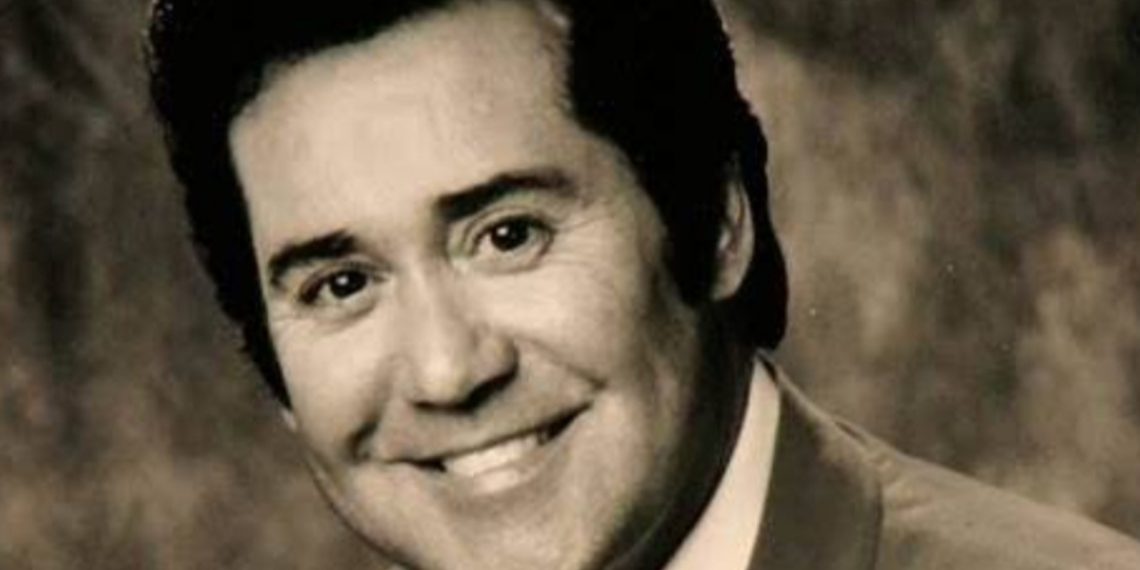Wayne Newton, a celebrated American singer, actor, and entertainer, has captivated audiences with his long and storied career, earning the nickname “Mr. Las Vegas.”
Despite facing financial challenges and setbacks, including bankruptcy, Newton has managed to maintain a significant net worth, estimated at $50 million as of 2025.
Known for his hit songs like “Danke Schoen” and “Daddy, Don’t You Walk So Fast,” Newton’s legacy is closely tied to his iconic performances in Las Vegas.
Early Life and Musical Beginnings
Born Carson Wayne Newton on April 3, 1942, in Norfolk, Virginia, Wayne Newton was exposed to music early on.
Raised in a family of modest means—his father was an auto mechanic—Newton learned to play multiple instruments, including the piano, guitar, and steel guitar by the age of six.
His passion for performing emerged in his childhood years, when he began performing in clubs, theaters, and fairs alongside his older brother.
In 1952, the family moved to Phoenix, Arizona, to help alleviate Newton’s severe asthma, which had affected his health.
It was here that Wayne and his brother formed the musical act “The Rascals in Rhythm,” which eventually led them to perform on popular TV shows such as “Ozark Jubilee.”
Their breakthrough came in 1958 when a Las Vegas booking agent spotted Wayne performing on the local show “Lew King Rangers.” The brothers were soon performing in Las Vegas, playing up to six shows a day.
Breakthrough and Las Vegas Stardom
In 1962, Wayne Newton made his TV debut on “The Jackie Gleason Show” and quickly began gaining recognition.
By 1963, he signed a contract with Capitol Records and released his first album, which included the hit single “Danke Schoen.”

This track catapulted him to fame, reaching #13 on the Billboard charts. It would later become one of his signature songs and featured in iconic films like Ferris Bueller’s Day Off (1986).
Newton’s rise was supported by prominent figures in the entertainment industry, including Lucille Ball, Bobby Darin, and Jack Benny.
These connections led to numerous opportunities, including a headlining act at the Flamingo Hotel in Las Vegas. His music continued to soar, and in 1972, his hit “Daddy, Don’t You Walk So Far” sold over one million copies.
As his popularity grew, Newton’s career flourished, and in 1999, he signed a 10-year residency deal with the Stardust Resort and Casino on the Las Vegas Strip, performing up to six shows a week for 40 weeks a year. This residency cemented his status as a Las Vegas legend.
Television and Other Ventures
In addition to his musical career, Newton expanded his reach into television. He appeared on various TV shows throughout the 1960s and 1970s, including a role on Bonanza and guest spots on The Ed Sullivan Show.
In 2005, he launched a reality competition show, The Entertainer, on the E! network, where the winner earned a spot in his Las Vegas show.
He also made a notable appearance on Dancing With the Stars in 2007, although he was eliminated early.
Despite these challenges, his entertainment legacy continued, as he received the Woodrow Wilson Award for Public Service in 2008, and resumed his Las Vegas performances in 2016 with his show Up Close & Personal at Bally’s Hotel.
Financial Challenges: Bankruptcy and Legal Troubles
Despite his success, Newton faced significant financial difficulties over the years. In 1992, he filed for Chapter 11 bankruptcy due to $20 million in debt.
A significant portion of this debt stemmed from lawsuits, including one against NBC for libel, and issues surrounding taxes. The bankruptcy was partially related to a $341,000 IRS lien and other financial mismanagement.
While Newton managed to recover from his bankruptcy by the late 1990s, his financial troubles did not end there.
In 2005, the IRS filed a lawsuit against him and his wife, claiming they owed more than $1.8 million in back taxes and penalties. This legal battle added to the financial strain on the entertainer.
Another incident involved Newton’s private jet. The Oakland County Airport in Michigan claimed that Newton had abandoned a $2 million plane there, with unpaid parking fees accumulating to over $60,000. The plane deteriorated beyond repair due to neglect, further complicating Newton’s financial situation.
Casa de Shenandoah: A Lavish Estate
Wayne Newton’s most famous real estate was his 39-acre estate, Casa de Shenandoah, located in Paradise, Nevada.
Purchased in the early 1960s, Newton gradually expanded the property to its impressive size, complete with a 11,000-square-foot mansion, seven additional houses, a zoo, and even a private jet terminal.
At the height of his fame, Newton lived on the estate with his family and a staff of 70 servants.
The property featured extravagant amenities, including an equestrian facility, a car museum, tennis courts, and a gaming room.
It even had exotic animals like Arabian horses, monkeys, and flamingos. In the 2000s, however, Newton faced financial restructuring, and in 2010, he was forced to sell 80% of the estate for $20 million.
The new owners planned to transform the property into a theme park, but these plans were eventually abandoned.
Newton attempted to regain ownership of the estate in 2019, but his offer was rejected, and the property was sold to Smoketree LLC for $5.56 million.
Financial Recovery
Despite his past financial struggles, Wayne Newton has shown resilience in his ability to recover and maintain his wealth.
After his bankruptcy, he managed to bounce back, securing lucrative performance contracts and continuing his Las Vegas residency.
Newton’s real estate ventures, along with his continued popularity as a Las Vegas entertainer, have helped him rebuild his fortune.
In addition to his music and performances, Newton’s investment in real estate and other ventures have contributed to his overall financial stability.
His net worth of $50 million is a testament to his longevity in the entertainment industry and his ability to adapt to changing financial circumstances.





